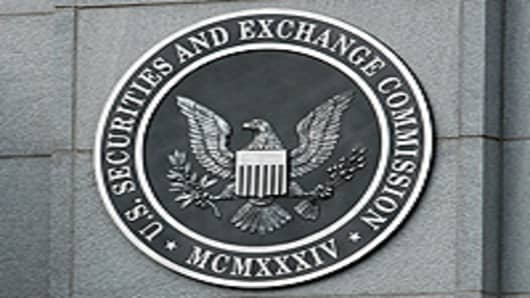Instead, the SEC is reportedly going to make it easier for firms like Goldman to set up these deals and offer them to their clients.
This is surprising. After all, the growth of these private markets is a rebuke to the SEC's regulatory apparatus. It shows that investors are willing to forego many of the benefits of SEC regulation, and that companies are able to raise money outside the public markets. Wouldn't we expect most regulators to jealously guard their turf by cracking down?
Perhaps the SEC decided that it was unlikely to see its authority expanded into these markets, and so it decided to go the other way: legitimize the new private markets in order to preserve its grasp over the public markets. In other words, it decided to allow an official escape valve for investment outside of Sarbanes-Oxley, Dodd-Frank and longer standing securities regulations.
By expanding the private market for new firms, the SEC would release some of the political and market pressure building against over-regulation of going public. Rather than liberalizing regulation, it would help protect existing regulation, Larry Ribstein writes on the Truth on the Market blog.
Ribstein goes on to point out that this decision is not without serious consequences.
[T]he increased costs of being public have helped exclude ordinary people from the ability to own the stars of the future. Back in the 1980s, you could just call your broker and get rich off of the Microsoft IPO. Now you have to be a wealthy Goldman client to do it. Of course you also got to get poor off of a company that turned out to be a dog. Now both options are reserved for wealthy people in the name of increasingly onerous disclosure regulation and federal governance requirements such as board structure, proxy access, and whistleblowing rules.
Do you understand what's happening? The SEC wants to preserve its authority in public markets and refuses to reduce the regulatory burden of companies with public stock. The investment banks want to increase their fees, and find that they can do this in private markets more easily than they can public market, where they are forced to compete with low cost brokers. So Wall Street and the SEC are cutting a deal that keeps both sides happy.
The irony is that this deal seems to be recreating some of the very practices the SEC and other regulators fought so hard to eliminate not so long ago.
Remember when investment banks were accused of abusive practices when allocating stock in IPOs? The SEC, for example, collected $100 million from Credit Suisse First Boston (as it was then known) in 2002 on charges that the bank had required investors in hot IPOs to pay kickbacks in the form of excessively high brokerage fees.
The SEC considered this profit flipping.
Customers paid these commissions on uneconomic, limited-risk trades in highly liquid, exchange-traded shares unrelated to the IPO shares - trades that they effected for the sole purpose of paying IPO flipping profits back to CSFB, the agency said.
So lets take a look at the Facebook deal put on offer from Goldman. Goldman charged an up front fee of 4 percent on any investment. Goldman also told investors that it would charge a .5 percent yearly management fee. What's more, Goldman would get 5 percent of any profits its clients make on the deal.
This goes way beyond CSFB's profit flipping.
Is this the outcome we want from securities regulation?
_______________________________________
Questions? Comments? Email us atNetNet@cnbc.com
Follow John on Twitter @ twitter.com/Carney
Follow NetNet on Twitter @ twitter.com/CNBCnetnet
Facebook us @ www.facebook.com/NetNetCNBC



